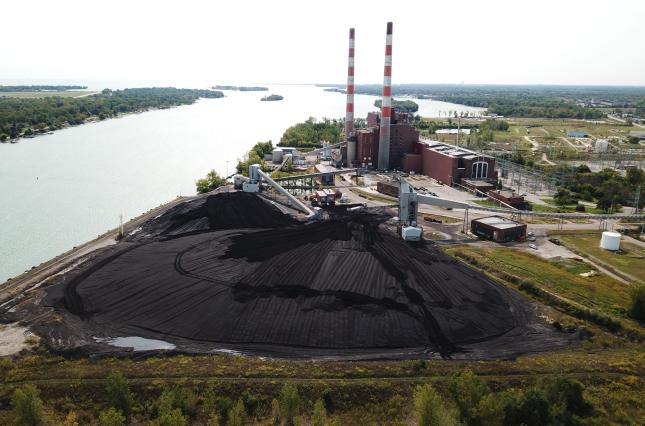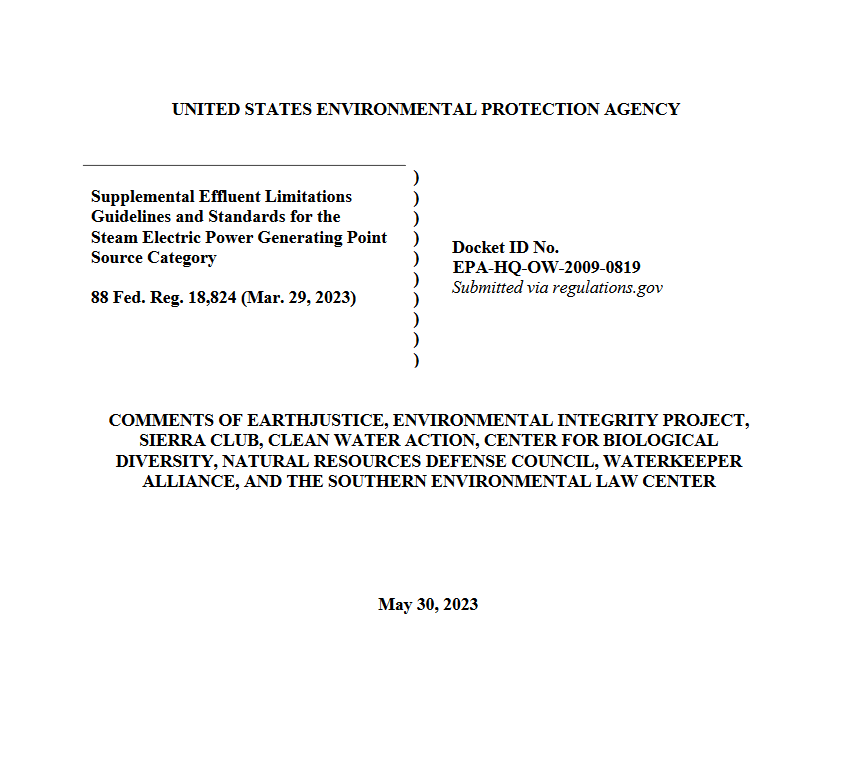Steam electric power plants, mostly coal plants, are responsible for the majority of arsenic, lead, mercury, selenium and other toxic metals discharged into our nation’s rivers, lakes, and streams every year. These plants also discharge high levels of nutrients, bromide, and other harmful pollutants. Power plant wastewater discharges have made it unsafe to eat fish from many rivers, contaminated the lakes and rivers where people swim, damaged aquatic ecosystems, and created treatment challenges for drinking water systems.
The Environmental Protection Agency’s 2023 Proposal would strengthen the wastewater treatment standards for steam electric power plants by prohibiting the dumping of flue gas desulfurization (“FGD”) wastewater and bottom ash transport water into U.S. waters.
If finalized, EPA’s proposed revisions would prevent more than half a billion pounds of pollutants from entering U.S. waters every year and provide hundreds of millions of dollars per year in public health and environmental benefits.
The record before EPA plainly demonstrates that the technologies to eliminate both wastestreams are available, achievable, and affordable. Thus, EPA should act swiftly to finalize these requirements.
However, for the legal and technical reasons set forth in detail below, EPA must also adopt zero-discharge standards for Combustion Residual Leachate (“CRL”) and legacy wastewater. CRL and legacy wastewater are both similar to FGD wastewater, are just as capable of being treated, and therefore the technology to eliminate both discharges is available and achievable to the same extent that it is for FGD wastewater. Moreover, zero-discharge treatment is far more cost-effective than treatment with chemical precipitation and thus more efficiently advances the goals of the Clean Water Act.
In light of the clear technical record before EPA, the Clean Water Act requires EPA to eliminate these wastestreams and set strong, national standards to curb dangerous coal plant water pollution and protect public health and our waters.
Our organizations – Earthjustice, Environmental Integrity Project, Sierra Club, Clean Water Action, the Center for Biological Diversity, Natural Resources Defense Council, Waterkeeper Alliance, and the Southern Environmental Law Center – urge EPA to adopt these recommendations and finalize the 2023 Proposal as expeditiously as possible.


